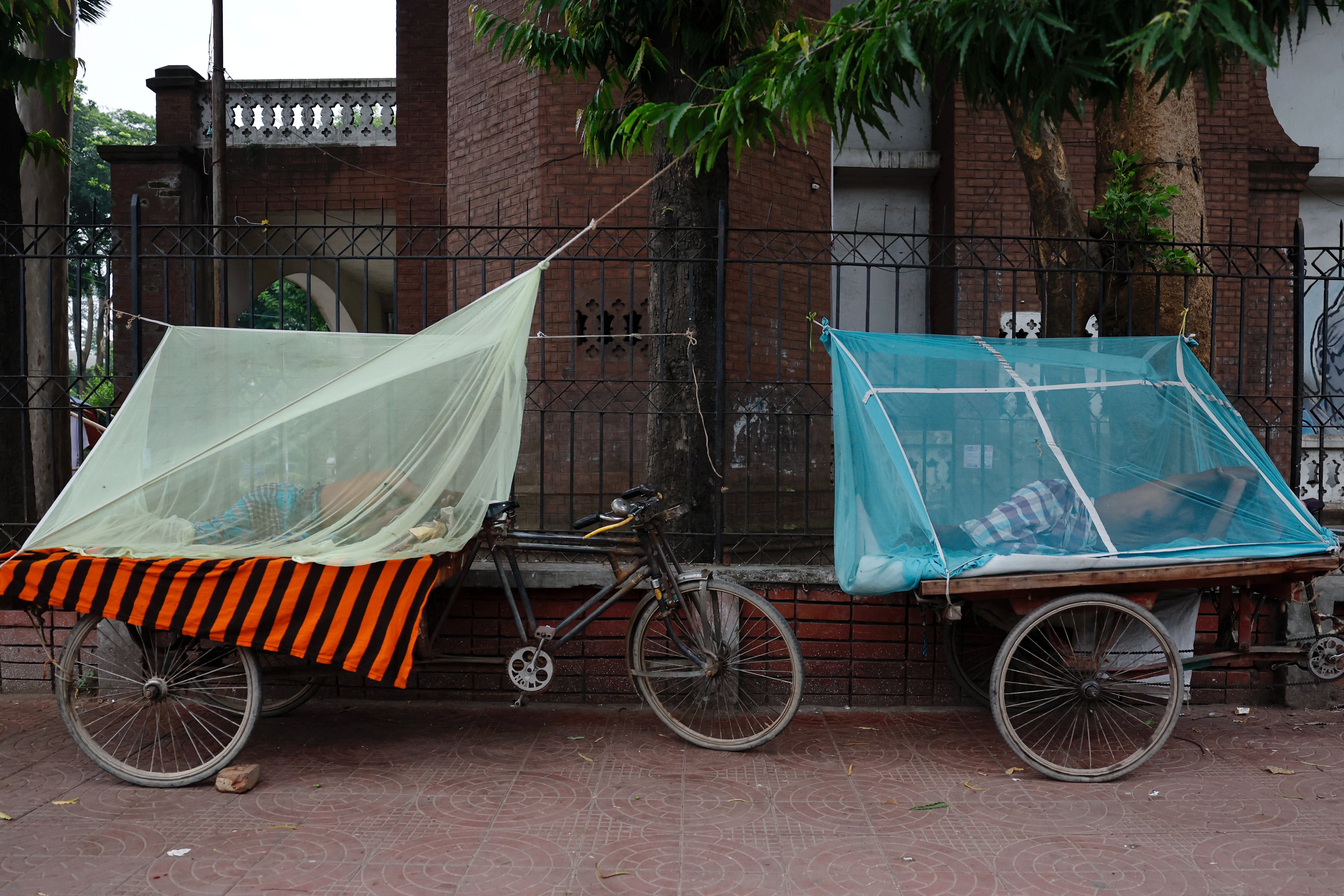
As Europe swelters in extreme heat, experts fear that rising temperatures caused by climate change could push tropical infectious diseases such as dengue and West Nile virus into the UK.
Researchers estimate that chikungunya (spread by virus) and dengue outbreaks could increase five-fold by 2060 under worst-case climate scenarios, according to a report in the Lancet Planetary Health journal.
It comes as Europe faces severe heatwaves and wildfires that scientists have attributed to human-induced climate change. There are growing fears that infections could be pushed northwards into Europe, as pathogens thrive in hot and humid conditions.
As well as heatwaves, rising greenhouse emissions have forced the world to adapt to floods, droughts and extreme cold.
Migration of mosquitoes to Europe
Changing climate conditions are making Europe more susceptible to both “vector” and water borne diseases, according to experts. A vector refers to a living organism that can transmit infections from animals to humans or between humans, such as a mosquito.
“Warmer temperatures and altered rainfall patterns caused by climate change mean that certain species of mosquitoes and ticks can now survive in Europe,” Cambridge professor of viral immunology Michael Weekes told The Independent.
Dengue, carried by Asian tiger mosquitoes, is now one of the fastest growing infectious diseases in Europe.

Globalisation and increased travel has brought a slight increase in travellers bringing the infection to Europe, figures show.
A total of 304 cases of Dengue were reported in 2024, according to the European Centre for Disease Prevention and Control. This is a large jump from the cumulative total of 275 cases reported over the last 15 years, which scientists believe could point to the disease becoming endemic in Europe.
“Asian tiger mosquitoes are now found in Croatia, France, Germany, Portugal and Spain – and can transmit dengue, chikungunya and Zika viruses,” Prof Weekes added.
“Whereas these generally cause mild infection, dengue can sometimes cause fever with severe bleeding, and Zika can be transmitted to unborn children.”
Flooding and extended periods of rain also disrupt water treatment and distribution processes, scientists fear. A UK government report warned this could cause bacterial blooms and the spread of antibiotic resistant genes.
These factors combined mean the disease season is now also longer, with ticks active all year round in some places.

Controlling the spread
While infectious diseases are rapidly adapting in a shifting climate, Prof Weekes said that Europe can still take measures to accommodate the changes.
“We must reduce greenhouse gas emissions to limit how bad this gets,” Prof Weekes said.
“We also need better surveillance, better control of mosquitoes and tick populations, increased vaccination for diseases such as tick-borne encephalitis, and education about avoiding insect bites. The Asian tiger mosquito bites during the day unlike many mosquitoes that bite in the evening and at night.”
A report released by the UK Health Security Agency in 2023 also suggested that more research needs to be conducted to obtain better evidence to measure the impact of climate change on infectious disease risk.
It called for strong collaboration between national and international public health agencies, cross-governmental agencies, care providers, such as the NHS and farmers, food manufacturers and the public.
UK accused of hypocrisy at landmark UN foreign aid conference
Millions of US kids attend schools in dangerous ‘urban heat zones,’ analysis finds
More than 100 people temporarily stranded after fleeing 478-acre California blaze
More Mediterranean and drought planting features in garden show as heatwave hits
Australia ‘bomb cyclone’ leaves homes flooded and powerlines down
Leading charity pulls accounts from HSBC over ‘climate damage worth more than £100bn’







